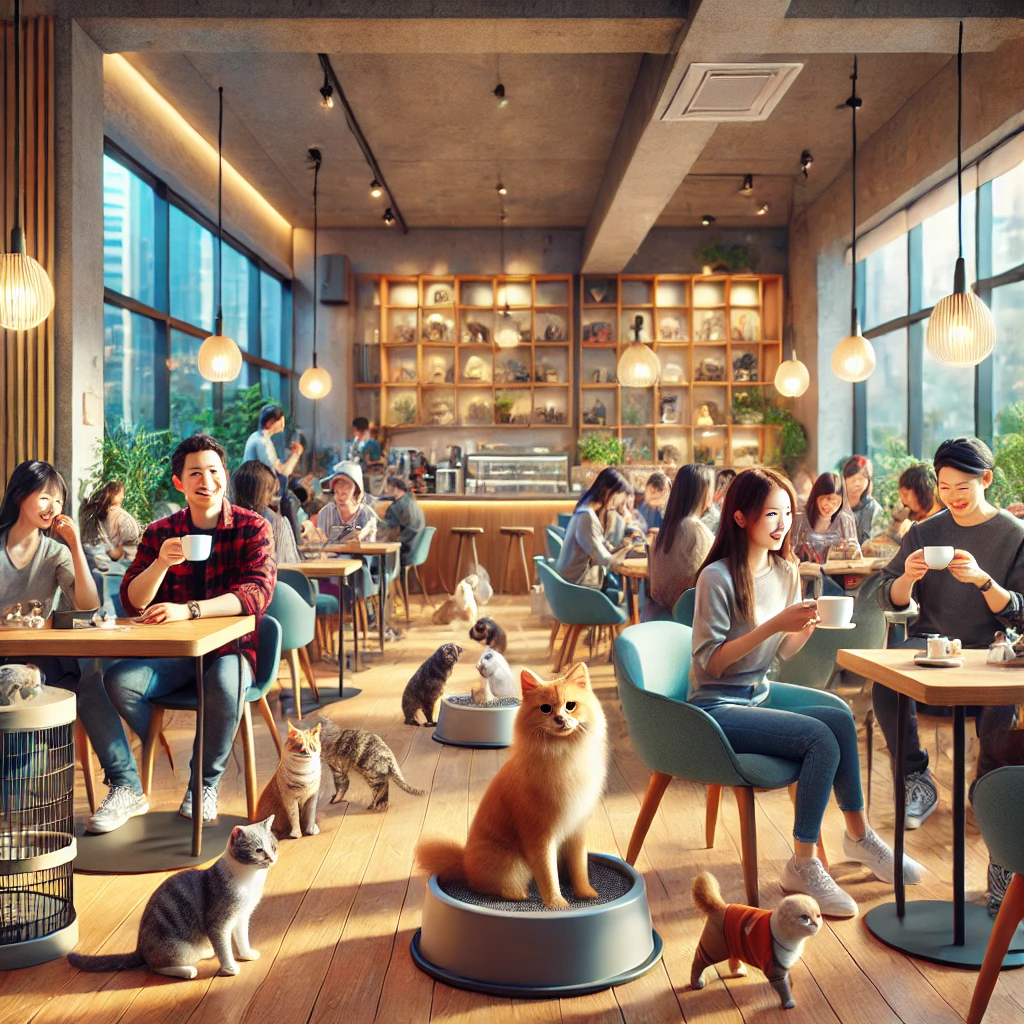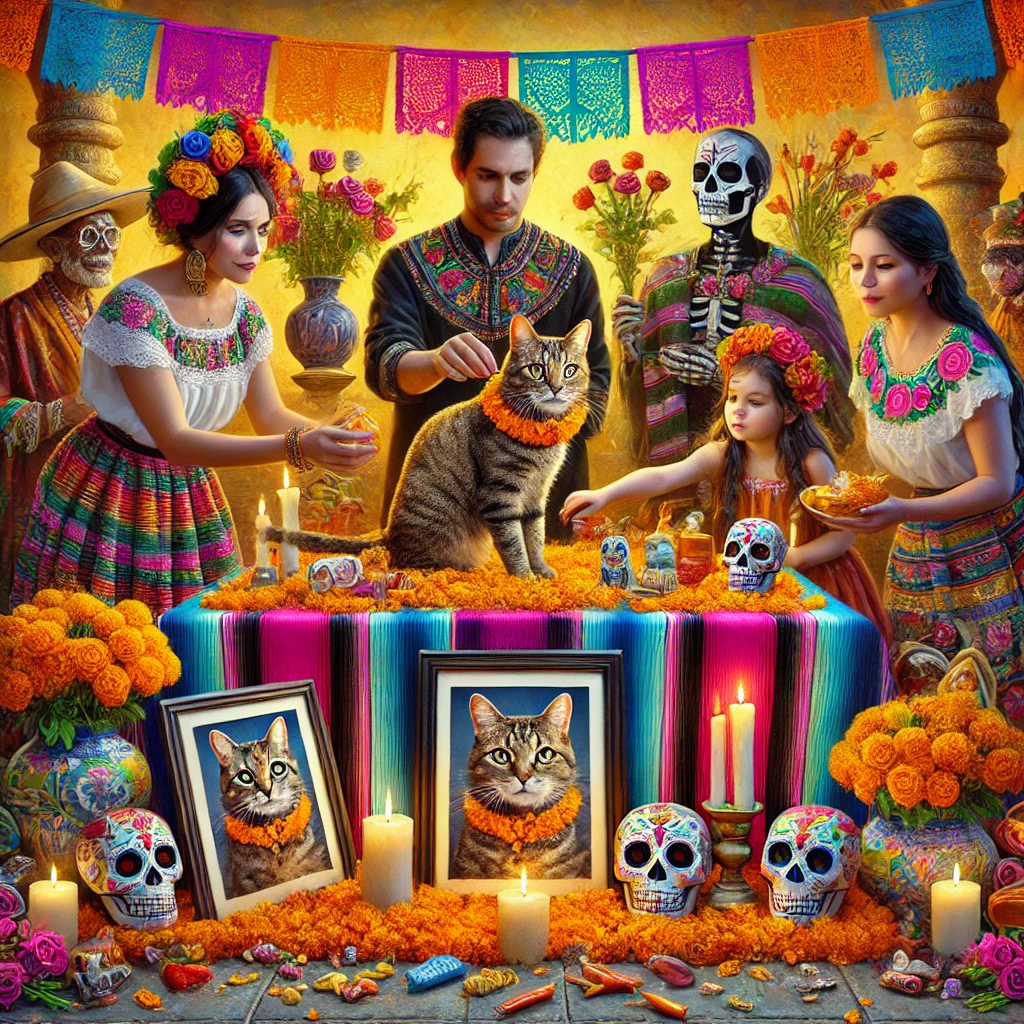Global Pet Traditions: Hilarious and Heartwarming Cultural Insights
Have you ever wondered what Fido would think if he knew how dogs are treated on the other side of the world? Or if Fluffy might be a little jealous of the pampering cats get in Turkey? Well, buckle up, pet lovers, because we’re about to embark on a whirlwind tour of some of the most unique, quirky, and downright hilarious pet traditions from around the globe. Spoiler alert: your pets might demand a little extra attention after you finish reading this!
Japan’s Obon for Pets: Because Fido Deserves a Spiritual Send-Off
In Japan, there’s a little thing called Obon, a Buddhist tradition where the spirits of ancestors are honored with offerings, prayers, and a few extra candles. But wait—this isn’t just for your great-great-grandparents. Nope, pets get the royal treatment too!
During Obon, Japanese families set up mini-altars dedicated to their deceased pets. We’re talking tiny bowls of their favorite treats, toys, and maybe even a plush pillow to rest their spiritual paws on. It’s like a pet spa day in the afterlife. This reflects Japan’s deep-rooted respect for all living beings, even those with fur and whiskers.
What does this mean for us? Well, next time your dog refuses to roll over, just remember, in Japan, they might get their own altar someday!
Mexico’s Day of the Dead for Pets: Skeletons, Sugar Skulls, and Furry Friends
When you think of Mexico’s Día de los Muertos (Day of the Dead), you probably imagine colorful skeletons, face paint, and sugar skulls. But did you know that this festive holiday isn’t just for humans? That’s right—our furry friends get in on the action too!
Families in Mexico create ofrendas (altars) for their beloved pets who have passed on. These altars are decorated with photos, the pet’s favorite snacks, and toys. Some even throw in a chew toy or two—because let’s face it, every dog needs to gnaw something in the afterlife.
This tradition reflects the Mexican view of death as a celebration of life, where pets are just as much a part of the family as anyone else. So, if you see your dog eyeing that sugar skull on the mantel, he might just be planning his own posthumous party.
China’s Pet Fashion: From Bow Wow to Meow Wow
In China, pets aren’t just animals; they’re fashion icons. Ever seen a Pomeranian in a tuxedo? How about a cat in a kimono? In China, dressing pets in elaborate clothing is more than just a hobby—it’s a national pastime.
Pet grooming salons in China resemble high-end boutiques, offering everything from silk scarves to tiny shoes that would make any fashionista jealous. This trend is a reflection of China’s burgeoning middle class and the desire to show off a little (okay, a lot) of status. Plus, who can resist a Chihuahua in a cheongsam?
But it’s not all about appearances. In Chinese culture, looking good is often tied to feeling good. So, when you see a Shih Tzu in a sequined jacket strutting down the street, just know they’re living their best, well-groomed life.
India’s Kukur Tihar: A Festival Fit for a Dog
Imagine a day where dogs are worshiped, adorned with marigold garlands, and fed the most delicious foods. No, this isn’t your dog’s birthday—it’s Kukur Tihar, a day dedicated to honoring dogs during Nepal’s Tihar festival, which is also celebrated in parts of India.
During Kukur Tihar, dogs are given tilak (a red mark on their forehead) as a sign of respect and blessings. They’re showered with treats and kind words, and let’s be honest, probably a few too many belly rubs. This custom reflects the deep reverence for animals in Hindu culture, where dogs are seen as protectors and messengers of the gods.
So, next time your dog looks at you with those big, soulful eyes, just remember—somewhere in India, there’s a festival where they’d be treated like royalty.
Turkey’s Street Cats: Feline Superstars of Istanbul
If you’ve ever been to Istanbul, you’ve probably noticed the cats. Lots of cats. They’re everywhere—lounging on café chairs, perched on ancient ruins, and even taking the occasional ferry ride across the Bosphorus. In Turkey, stray cats are practically celebrities.
The people of Turkey have a long history of caring for these feline wanderers. You’ll see water bowls and food left out for them on street corners, and many shops and homes keep their doors open so the local kitties can come and go as they please. It’s like Airbnb, but for cats.
This tradition reflects the Islamic belief in kindness towards animals, especially cats, which are revered for their cleanliness and independent spirit. So, if your cat decides to start demanding more freedom, you might just have Turkey to thank.
Russia’s Subway Dogs: Canine Commuters
In Moscow, stray dogs have learned to navigate the subway system. Yes, you read that right—these pups are riding the rails like seasoned commuters. They’ve figured out the best times to catch a ride, where to find the warmest spots, and how to score snacks from sympathetic passengers.
The phenomenon of Moscow’s subway dogs highlights the resilience and adaptability that’s characteristic of Russian culture. Despite the challenges they face, these dogs have become a part of the city’s daily life, and Muscovites have a soft spot for their four-legged fellow travelers.
So, next time you’re stuck in traffic, just think—somewhere in Moscow, a dog is probably having a smoother commute than you are.
South Korea’s Pet Cafés: Coffee, Cake, and Cuddles

If you’re ever in South Korea and craving some quality pet time, you’re in luck. South Korea is home to countless pet cafés, where you can sip a latte while snuggling with a fluffy friend. Whether you prefer cats, dogs, or something a little more exotic, like raccoons or owls, there’s a café for you.
These cafés are more than just a cute place to hang out—they’re a reflection of South Korea’s urban culture, where living spaces are small, and pet ownership isn’t always feasible. The popularity of pet cafés shows the desire for companionship and the therapeutic benefits of spending time with animals, even if it’s just for an hour or two.
So, if your pet is giving you the side-eye while you sip your coffee, maybe it’s time to book a table at the nearest cat café—just don’t forget the catnip!
Final Thoughts: Pets as Cultural Ambassadors
Pets aren’t just cute, cuddly companions—they’re cultural ambassadors, reflecting the values, beliefs, and quirks of the societies they live in. Whether they’re being pampered, worshiped, or commuting on public transport, pets around the world remind us of the universal love and humor they bring into our lives.
So, the next time your pet does something ridiculous (like hogging the bed or demanding treats at 3 AM), just remember—they’re not just being quirky; they’re expressing a rich cultural tradition. Or, you know, they’re just being pets. Either way, give them an extra scratch behind the ears—they’ve earned it.



Post Comment